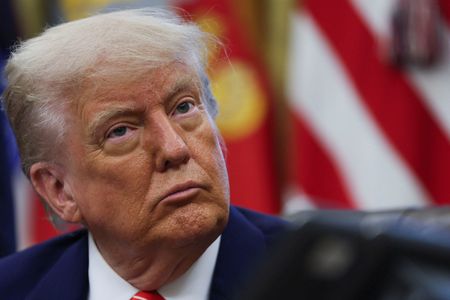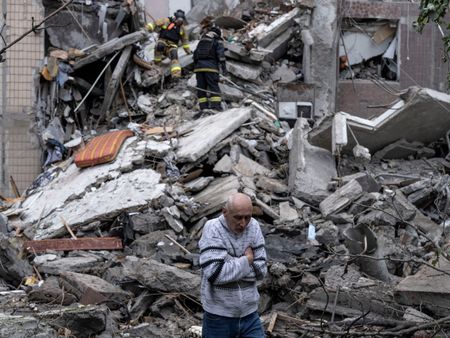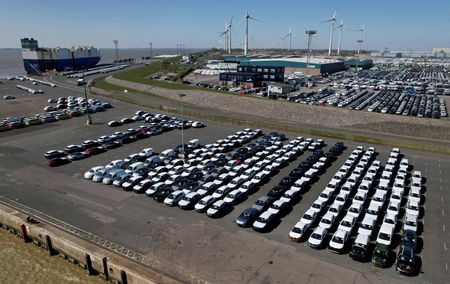By Luiza Ilie
BUCHAREST (Reuters) -A deepening political crisis after the first round of Romania’s presidential election triggered the collapse of a pro-Western government, raised the risk of pushing the country into recession, the head of the country’s largest investors’ group said.
Financial assets in the European Union and NATO member state have tumbled since hard-right eurosceptic George Simion won Sunday’s vote, triggering the resignation of leftist Prime Minister Marcel Ciolacu.
Market yields spiked, driven by growing doubts whether Romania can rein in the EU’s highest budget deficit exceeding 9% of output and stave off a credit rating to a junk status.
“At the moment what we all see is a lot of fear,” Radu Burnete, director of employers’ association Concordia, told Reuters in an interview.
Concordia’s members represent 20 industries that together account for 30% of Romania’s economic output and employ just under half a million people.
“What we risk now because of political instability is to throw Romania in recession,” Burnete said.
“If we don’t have a proper government, if we send mixed signals, if we are downgraded … then quite frankly, I expect pretty severe recession.”
Central Europe’s second-largest economy grew just 0.8% last year, its slowest pace since the COVID-19 pandemic, with growth slowing each year since 2021.
Simion will face centrist independent Bucharest mayor Nicusor Dan in a run-off vote on May 18. The result could upend Romania’s pro-Western course as the winner will nominate the next prime minister and influence the ruling majority.
“Whichever government is installed has the duty to do everything in its power to avoid losing investment grade rating,” Burnete said. “Once you lose the trust of foreign markets, it will take years to get it back and it will be painful.”
Analysts polled by Reuters last month forecast the economy will grow 1.9% this year, less than the 2.5% estimate the government used when drafting the 2025 budget. The budget assumption did not take into account the political upheaval or the impact of U.S. trade tariffs.
Concordia estimates the tariffs could reduce economic output by between 0.3% and 0.7%.
U.S. share in Romania’s direct exports was insignificant, but Burnete said parts and components shipped to European markets ended up in final products that were exported, which made it difficult to assess the overall impact.
“We have very large exposure in this two-step supply chain,” he said. “Some sectors are more at risk, the auto industry, furniture, equipment, even IT depending on the European response.”
He also said that tax hikes, which economists and ratings agencies say are all but inevitable to reduce Romania’s budget deficit, would also amplify recession risks and ultimately not yield the projected revenue.
“The longer the political instability drags on, the higher the brutality with which the state will need to cut its spending,” he said.
(Additional reporting by Gergely SzakacsEditing by Tomasz Janowski)










